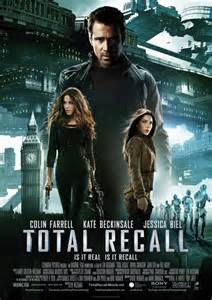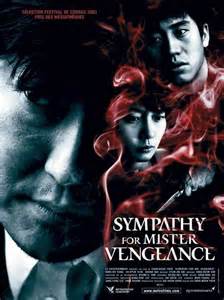A Serbian Film – Skyfall – Stone – Sympathy For Mr Vengeance – Tokyo Godfathers – Total Recall
___________________________________________________

A Serbian Film (Srđan Spasojević, 2011) **
Director Srđan Spasojević has been much mocked for the title of his deliberately repulsive horror movie, which has just been released, with understandable hesitation (even after several cuts) on DVD. True, it is a Serbian film, so no contravention of trades description laws there. But his detractors have argued that by choosing to name it thus, Spasojević is dignifying what is basically a peurile exercise in the outer limits of extreme torture porn with a spurious political significance. Just the thing, they say, to cynically titillate western audiences for whom Serbia remains a byword for deranged, state-sanctioned butchery.
The plot is intriguing enough, and were Spasojević less eager to excite gibbering talking-points amongst the seen-it-all gore-hound crowd, he might have been onto something.
Gone-to-seed porn star Milos (sympathetically played by Srdjan Todorovic) is anxious to provide for his family but spends most of his time re-living past glories courtesy of his DVD collection. A request from a mysterious admirer and filmmaker promises to bring him untold riches, and before you can say ‘Faustian pact’, he’s being whisked off blindfolded in the back of a car to a secret location where his new starring rôle awaits him.
After a creepily effective escalation of suspect scenarios, he wakes up bloody and bewildered in his own bed and, as in a berserk variation on The Hangover films, he struggles to piece together just what brought him to this pass. The answers, as you can imagine, really aren’t pretty. In fact, Spasojević goes all-out in terms of brain-melting cinematic technique and frenzied taboo-busting to pummel the viewer into a punchdrunk state of shock.
The most notorious sequence, however, takes place some time before this climactic descent into hell when said mysterious employer gives Milos (and us) fair warning of what he’s getting himself into. It involves a glimpse of an unspeakably disgusting innovation in porn, and Spasojević has been especially reviled for crossing this particular line. Yet who can deny the film’s central premise, that the anything-goes outlands of on-line porn have made such depravities possible, maybe, God help us, even inevitable? The defence might also cite weighty cultural precedents, ranging from Sarah Kane’s Blasted, Pasolini’s Salo, Shakespeare’s Titus Andronicus, even the Old Testament (at least Spasojević doesn’t go so far as to actually recommend rape, incest and infanticide, as the Good Book sometimes does).
Alas, Spasojević himself spikes such potentially persuasive arguments by the frequent ludicrousness of his vision, including a tendency to dress most of his female characters like fetishistic pole dancers, and to tubthump about art, society and pornography like somebody regurgitating an ill-digested volume of Michel Foucault. By the time the blood-covered Milos is using the engorged tool of his trade to literally skullfuck one of his tormentors to death, you know you’re a million miles away from the cold, forensic disgust of a Pasolini and in some freakish sideshow fronted by someone hissing ‘Psst, wanna see something really messed-up?’.
_________________________________________________________
 Skyfall (dir. Sam Mendes, 2011) ****
Skyfall (dir. Sam Mendes, 2011) ****
Big things were anticipated, indeed demanded, for Bond’s 50th birthday bash, and director Sam Mendes and his team – including screenwriter John Logan, whose Rothko play, Red, hits the Segal Centre this month – have clearly borrowed liberally from cinema’s most celebrated re-boot, namely the Dark Knight franchise. The similarities are there not only in the way Bond re-visits his troubled origins, but in the deft way it delivers epic action scenes against spectacular international backdrops while otherwise grounding things in a back-to-basics sense of reality. Bond Begins, in other words, and though we’re three installments in with the Daniel Craig incarnation, this one finally feels brash and confident enough to dispel the notion that we’re watching a test-run aimed at winning over the die-hards to such an unconventional 007.
One happy result of this more relaxed spirit is the way it allows itself lots of fun slotting in elements of half-a-century’s worth of Bond movie mythology. There’s the death-by-exotic-creatures scene (no, not piranhas), the signature set of wheels (thankfully not an invisible car but a genuine old favorite) and the villain’s remote lair (not a hollowed-out volcano).
Speaking of the villain, this one too is pure vintage, an effete, spookily blond sociopath gleefully played by Javier Bardem with, one suspects, an eye on Julian Assange, the other on that mercurial, giggly über-baddie who just wanted to watch Gotham burn.
As with Dr No, we have to wait a long time before Bardem’s Raoul Silva makes his entrance. But what an entrance, as he takes his own sweet time strolling into the camera’s focus while delivering a beautifully calibrated speech about rats and men, before purring seductively and caressing the captive Bond’s thighs. Once, Bond’s riposte to this outrageous man-on-man flirting would have been amused contempt (‘a herd of unhappy misfits’ is how Ian Fleming had Bond describe homosexuals). This new-model metrosexual Bond, though, comes back with a come-hither quip that puts the delighted Silva’s gaydar on high alert.
Of course, it’s unlikely we’re ever going to get an ‘out’ Bond, and, to paraphrase Roger Moore, he’s still keeping the British end up as far as bedding instantly willing females is concerned. But none of them can hold a candle to the main object of Bond’s affections, that imperious and vinegary mother surrogate M (Judy Dench). ‘Mommy’s been bad,’ taunts Silva, and Bond spends as much of the movie wrestling with his Oedipal issues as he does slugging it out with the bad guys, finally winding up on the Scottish highlands, the primal turf of his origins, for a climax that’s part Straw Dogs, part Thirty-Nine Steps.
It’s all an audacious sidestep from the world of laser-armed space satellites and Union Jack parachutes, and Mendes, known for psychologically complex material like American Beauty and Revolutionary Road, seems most in his element when he’s got Bond on the couch. His approach could easily have alienated the fan-base, especially given that Bond now has to make do without an array of ingenious gadgets (Ben Whishaw’s shabbily-dressed Q certainly knows there’s a recession on). Thankfully, there’s still enough preposterous mayhem flying around to keep even the most fidgety fans happy. Cleary, this ever-evolving icon isn’t ready for the ejector seat just yet.
_______________________________________________________

Stone (2010, dir. John Curran) ***
Stone is a brooding, uncompromisingly sombre drama which, for the first forty minutes or so, could go in any direction. Is it a prison-set tale of redemption through old-time religion? Is it a Fatal Attraction-style thriller with Blue Angel undertones, what with Robert De Niro’s aging chump falling for Milla Jovovich’s sultry and dangerous kook? Or is it simply a Method acting masterclass in which two screen heavyweights – De Niro and Edward Norton – show off their acting chops while facing each other across a desk?
By the end of its 105-minute running time, it’s shaped up as a meaty exploration of lives seemingly lived on opposite sides of the law which, by the grace of either an unforgiving god or a morally indifferent universe, collide, tangle, and finally kind of trade places.
Norton, initially sporting corn-rows and a perhaps deliberately irritating set of trash-talk mannerisms, plays a convict who calls himself Stone and who is into his eighth year for arson and abetting the murder of his grandparents. De Niro plays Jack, his dour and faith-tested case worker who, with his own retirement just weeks away, is earmarked for some kind of big revelatory experience to send him on his way. It seems we might be into the kind of film where this turning point comes in the form of Stone getting under his skin, maybe with Jack banging on his desk and yelling at his recalcitrant charge “I’m all you’ve got!”, before the two of them acknowledge a grudging mutual respect.
It’s to the credit of director John Curran and screenwriter Angus MacLachlan (whose stage play this originally was) that Stone largely avoids such over-familiar Hollywood tropes and instead offers a study of deeply flawed people trying and spectacularly failing to make the best of very bad circumstances. As the soundtrack alternates between doom-laden music and snippets from fire-and-brimstone talk radio preachers (the latter providing an ironic commentary on the action, much as the broadcasts of Obama speeches did in the recent Killing Them Softly), the various strands draw tightly around the seemingly stable, god-fearing home-life Jack shares with his meek but damaged wife, played with painful vulnerability by Six Feet Under’s Frances Conroy. Just when we think we’ve got a character’s number, we’re blindsided by an unexpected but largely credible act of malice, grace, cupidity or just sheer stupidity. This last aspect is perhaps not entirely blameworthy, considering it’s instigated by a character played by the seductively pouting Jovovich as Loretta, Stone’s manipulative but childlike femme fatale of a wife. Encouraged by Stone to approach Jack out-of-hours to persuade him to look favorably on Stone’s bid for early release, Loretta is soon going beyond the call of wifely duty, though whether for her own or Stone’s ends is left ambiguous to the end.
Director Curran keeps the action low key and left-of-centre, slightly self-consciously reaching for the feel of classic seventies independent cinema. Transitional shots are deliberately jarring, the pacing brooding and in no particular hurry to please an audience expecting, perhaps, a cat-and-mouse crime thriller along the lines of Norton’s breakthrough film, Primal Fear. There’s a moment of extreme and harrowing violence, but Curran plays it like a hallucinatory grace note, and the film’s last-reel switch to revenge thriller territory maintains the general sense of characters bemusedly observing the car crash of their lives from the sidelines.
No doubt because of its lack of crowd-pleasing instincts, Stone flopped big time on its release, creeping quietly onto the DVD shelves despite its star power. Or perhaps, in the case of De Niro especially, because of it. Even his most ardent fans have long wearied of his propensity for taking roles for no other reason that there’s a cheque at the end of it. Here, though, he gives a committed and uncomfortably raw and exposing performance which, like the film itself, dares to go out on a limb.
______________________________________________________________
Sympathy for Mr Vengeance (dir. Park Chan-Wook, 2002) ***
The precursor to Park Chan-wook’s Cannes-storming Oldboy, this is also a revenge tragedy told from the point of view of the revenger, made all the more troubling by inviting us to understand what sends him on his bloody path. If it’s not quite as stomach-churning as Oldboy’s tooth-yanking, hammer-wielding, octopus-chomping parade of horrors, it’s still pretty gruelling stuff. There are enough tortures and murders to wag the tail of the most enthusiastic gore-hound, and enough existential ponderings to assure us that we’re enjoying it, or enduring it, for art’s sake.
”Mr Vengeance” is, initially at least, a mild-mannered business man whose world is turned upside down when his little daughter is kidnapped by a punk-haired deaf-mute to raise money for his sister’s kidney transplant. When the kidnapping inevitably goes horribly wrong, the devastated father finds himself in the grip of the obligation to exact revenge. The kidnapper, meanwhile, discovers new depths of depravity in himself as he tries to stay one step ahead while pursuing his own vengeance against a brutal gang of organ-traffickers.
Part of the much-celebrated Korean New Wave of cinema, this is an undeniably powerful and stylish affair, spiked with unexpected flashes of black humour. But it’s also needlessly complicated, and often feels a bit too calculating in its cruelties for its own good. Still, if you can take what Park Chan-wook throws at you here, you might just about be ready for the superior, er, pleasures of Oldboy.
_________________________________________________________
Tokyo Godfathers (dir. Satoshi Kon, 2003) **
Those who associate Japanese Manga cartoons with the kind of ultra-violent splatter that gets homaged in Kill Bill might be surprised to learn that tears flow more copiously than blood in this Christmas tale of life at the bottom of the heap.
Echoing John Ford’s sentimental western Three Godfathers, Tokyo Godfathers begins with three homeless people discovering an abandoned baby in a dump. Armed only with photos of what they take to be the mother and father, the colourfully-realised trio – ageing drag queen Hana, the guilt-ridden booze-sozzled Gin, and sullen runaway Miyuki – set off on an urban Odyssey to re-unite the baby with her parents. Along the way, they encounter Yakuza figures, an assassination attempt and, in one of the film’s more alarming episodes, a bunch of tearaways who get their kicks from cleaning up the streets of the homeless.
As you’d expect from one of the masters of the genre, Satoshi Kon’s visuals are hugely impressive, whether capturing what would otherwise be the ordinariness of life on Tokyo’s streets, or hurtling along in set-piece action sequences.
What lets it down rather is a plot which consists largely of a pile-up of increasingly improbable co-incidences. The religious overtones of the seasonal setting perhaps explain some of the miraculous occurrences, but when our heroes keep encountering yet another character who’s crucial to the plot around every corner, the effect is to suggest that Tokyo is less a sprawling city than a few blocks within spitting distance of eachother.
_______________________________________________________________

Total Recall(Len Wiseman, 2012) **
Those who go along predisposed to bury this remake of Total Recall will find themselves being handed a scoff-worthy treat from the off, when the production company’s name, Original Films, appears on the screen. For Len Wiseman’s re-imagining of Philip K Dick’s short story, ‘We Can Remember it For You Wholesale’, fails on just about every definition of originality, whether it be its status as a re-make of a film barely twenty years old, or its borrowings from every dystopian science fiction movie from Fritz Lang’s Metropolis onward.
True, some of these borrowings are more apposite than others. For instance, the futuristic rain-soaked slums glittering with neon Chinese-style calligraphy recall another Dick derivative, namely Blade Runner. And the army of robotic law-enforcement officers is surely a tribute to Robocop, the most celebrated film from the director of the the original Total Recall. Trouble is, this last aspect, as well as a general lack of self-aware smarts, smacks more of George Lucas than Paul Verhoeven, and not in a good way.
As so often with over-hasty re-hashes, its makers claim they’re going back to the literary source material rather than the original screen adaptation. Thus, like Dick’s story, this Total Recall merely references a trip to Mars rather than actually sending its hero there : the action remains earthbound, albeit on an Earth largely transformed into an alien landscape by a recent bio-warfare apocalypse. This is perhaps the film’s most impressive leap of imagination, with the two last outposts of human civilization disposed on opposite sides of the globe and linked by a colossal transport system that passes through the Earth’s core. One of these outposts is called the United Federation of Britain, the other the Colony, and while the latter is situated in Australia, its imminent invasion by those overbearing cousins consciously recalls the revolution that launched the United States (and a thousand Brit-accented Hollywood villains).
It’s about the only witty touch in its two-hour run-time – well, OK, Obama’s face on futuristic banknotes also raises a smile. But what’s sorely lacking here is the gleefully wicked sense of humour Verhoeven brought to the material. Indeed, Wiseman and his cast barely crack a smile, let alone break into a politically incorrect cackle. Chief glumster is Colin Farrell who, though more than passing muster as an all-running, all-shooting action hero, never gives the impression, as Schwarzennegger’s Doug Quaid did, that his character is having fun, whether real or imagined.
We don’t even get Farrell’s karaoke version of ‘consider-dat-a-divorce’, which is doubly a shame, given the fact that this version’s focus on his decidedly troubled marriage (Kate Beckinsale’s suddenly murderous – and suddenly Brit-accented – Mrs Quaid is the film’s heavy-in-chief) offers a rich vein of irreverent, cod-Freudian humour here left po-faced-edly untapped.
In the end, Wiseman – who previously oversaw the simple-minded kinetic thrills of the Underworldfranchise – seems content to just zip things along against an admittedly eye-popping backdrop of sprawling megacities and anti-gravity freeways. But, with the memory-impaired secret-agent having become something of a movie cliche in the last twenty years, not least in the Bourne series, this variation has little of note to add to it beyond pretty CG scenery and flying cars. Let’s just say if you’d paid to have this film implanted in your memory, you’d soon be back complaining that the procedure hadn’t quite worked as advertised.
________________________________________________________________


